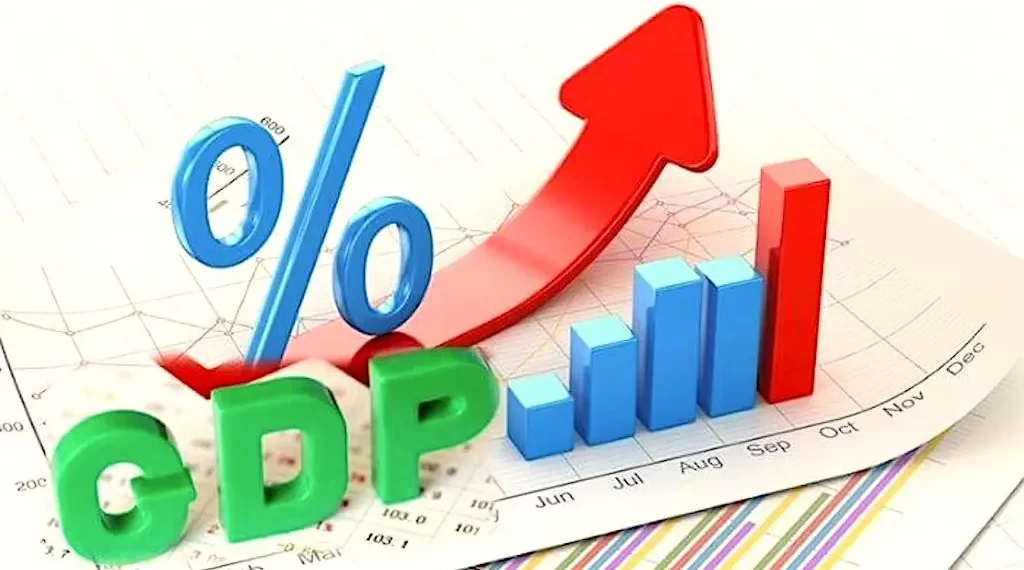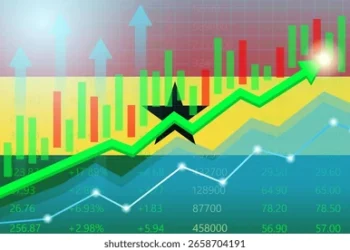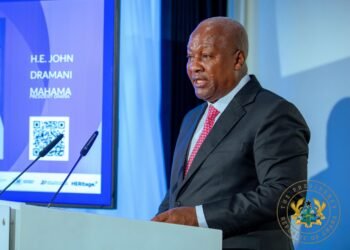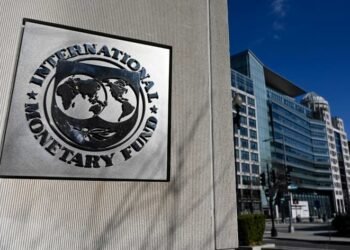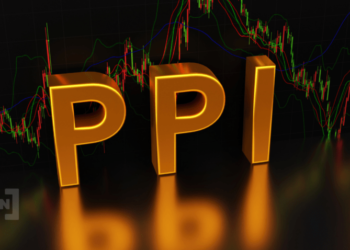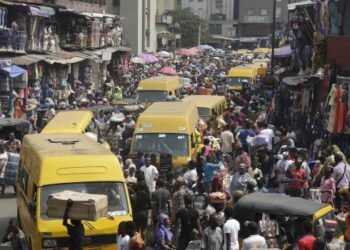Ghana’s economy has experienced its slowest pace of growth in two years in the third quarter of 2022 (July to September 2022).
According to the Ghana Statistical Service, Ghana’s Gross Domestic Product (GDP) expanded by 2.9% in the third quarter of 2022, a 1.8 percentage points lower than the revised rate of 4.7% in the second quarter of 2022.
At a press briefing to announce the figures today, Wednesday, December 21, 2022 in Accra, Government statistician, Prof. Samuel Kobina Annim, said the figure was the lowest since the economy expanded 3.0% in the first quarter of 2021.

“This is the least we’ve grown since the economy began to bounce back from the COVID-19 pandemic.”
Prof. Annim
Prof. Annim disclosed that GDP growth figures were revised for the first quarter of this year to 3 percent and to 4.7 percent for the second quarter, down from 3.3 percent and 4.8 percent respectively.

In the same period of 2021, the West African nation experienced a strong growth rate of 6.5 percent. The GDP growth rate without oil and gas (Non-Oil GDP) for the third quarter of 2022 was 3.6 percent, a sharp decline of 4.6 percentage points compared to the same period in 2021 with a growth rate of 8.2 percent.
Between July and September this year, the Agriculture sector recorded the highest growth of 4.6 percent, followed by the Services sector with a growth of 3.9 percent. The Industry sector experienced the lowest growth rate among the 3 major sectors, expanding by only 0.9 percent.
The slowdown in growth came amid surging inflation, a depreciating local currency and mounting debt. The government on Monday, December 19, 2022 announced a temporary suspension of the payment of selected external debts to entities that have lent money to the country.
Q2 Growth rate
Ghana’s economy expanded by a revised 4.7% in the second quarter of this year, higher than the 3.0% recorded in the first quarter.
The appreciable growth rate in Q2, 2022 was driven by Manufacturing (8.8%), Crops and Cocoa (4.5%), Mining and Quarrying (4.4%), Information and Communication (12.4%) as well as the Education (13.2%) sub-sectors.
For the sectors, the Services sector (5.2%) expanded more than the national average. It was followed by Agriculture (4.6%) and Industry (4.4%).
High average prices, which stemmed from currency volatilities and high ex-pump petroleum prices set in motion an inflationary spiral which now see inflation at a 27-year high of 50.3% as of the end of November, 2022.
The Bank of Ghana now expects inflation to peak in the first quarter of 2023, before declining to its target band. The high inflation is expected to weigh heavily on the overall growth of the Ghanaian economy in 2022.
Amid the current economic turmoil, Fitch Solutions earlier this month revised its growth forecast for Ghana in 2023 to 2.9 percent, down from an earlier forecast of 4.6 percent.
Meanwhile, the Government of the Ghana now expects the economy to expand by 2.8% in 2023 with a Non-oil real Gross Domestic Product growth also projected at 3% in 2023.
READ ALSO: Labor Demand Up By 11.7% At The Beginning Of Q4 2022

